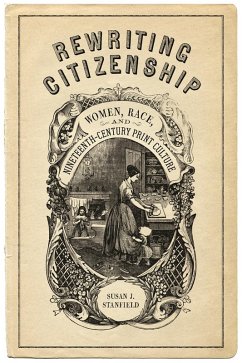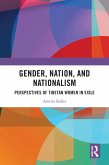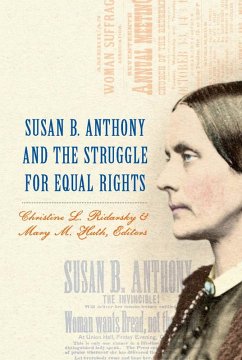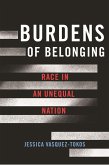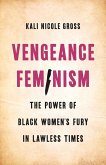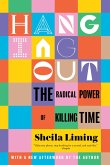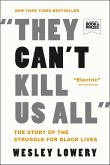Rewriting Citizenship provides an interdisciplinary approach to antebellum citizenship. Interpreting citizenship, particularly how citizenship intersects with race and gender, is fundamental to understanding the era and directly challenges the idea of Jacksonian Democracy. Susan J. Stanfield uses an analysis of novels, domestic advice, essays, and poetry, as well as more traditional archival sources, to provide an understanding of both the prescriptions for womanhood espoused in print culture and how those prescriptions were interpreted in everyday life.
While much has been written about the cultural marker of true womanhood as a gender ideology of white middle-class women, Stanfield reveals how it served an even more significant purpose by defining racial difference and attaching civic purpose to the daily practices of women. Black and white women were actively engaged in redefining citizenship in ways that did not necessarily call for suffrage rights but did claim a relationship to the state.
The prominence of true womanhood relied upon a female-focused print culture. The act of publication gave power to the ideology and allowed for a shared identity among white middle-class women and those who sought to emulate them. Stanfield argues that this domestic literature created a national code for womanhood that was racially constructed and infused with civic purpose. By defining women's household practices as an obligation not only to their husbands but also to the state, women could reimagine themselves as citizens. Through print sources, women publicized their performance of these defined obligations and laid claim to citizenship on their own behalf.
While much has been written about the cultural marker of true womanhood as a gender ideology of white middle-class women, Stanfield reveals how it served an even more significant purpose by defining racial difference and attaching civic purpose to the daily practices of women. Black and white women were actively engaged in redefining citizenship in ways that did not necessarily call for suffrage rights but did claim a relationship to the state.
The prominence of true womanhood relied upon a female-focused print culture. The act of publication gave power to the ideology and allowed for a shared identity among white middle-class women and those who sought to emulate them. Stanfield argues that this domestic literature created a national code for womanhood that was racially constructed and infused with civic purpose. By defining women's household practices as an obligation not only to their husbands but also to the state, women could reimagine themselves as citizens. Through print sources, women publicized their performance of these defined obligations and laid claim to citizenship on their own behalf.
Dieser Download kann aus rechtlichen Gründen nur mit Rechnungsadresse in A, D ausgeliefert werden.

